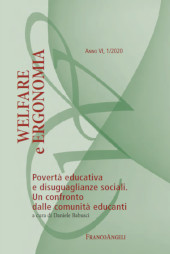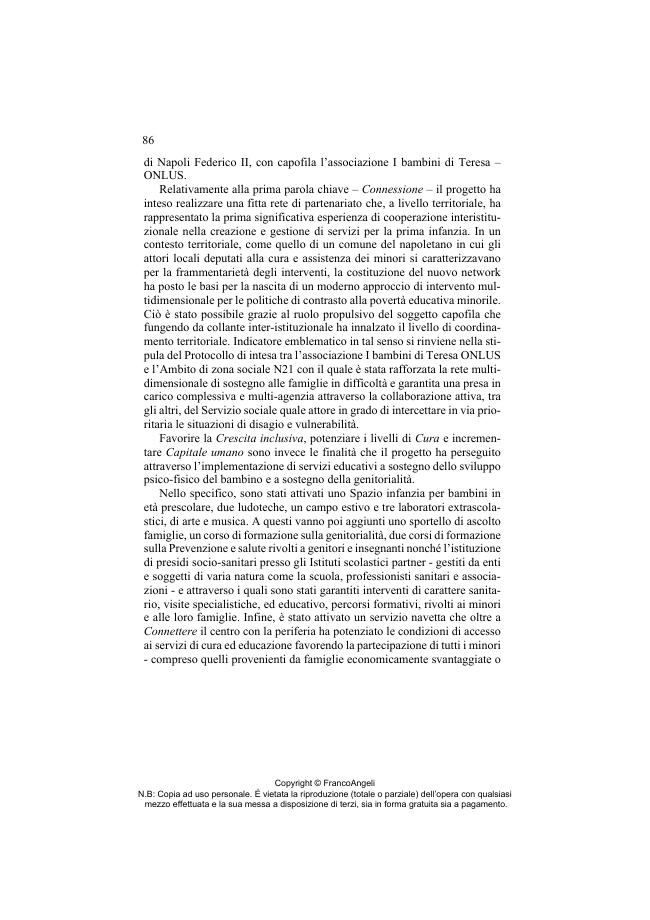Diseguaglianza sociale e povertà educativa : un modello di intervento
81-90 p.
L'articolo analizza il tema delle diseguaglianze sociali concentrandosi sul fenomeno della povertà educativa. La prima parte si pone come obiettivo di approfondire l'argomento dal punto di vista concettuale, indagandone prima la sfera definitoria, poi le misure d'intervento sul piano nazionale e sociale, soffermandosi inoltre sull'attivazione delle reti comunitarie nel-la lotta alla povertà educativa a partire dall'istituzione di un Fondo governativo rivolto al suo contrasto. Nella seconda parte si indaga su uno studio di caso che riguarda, nello specifico, l'analisi delle attività e i risultati ottenuti nell'ambito del progetto Le 4C: Connessione, Crescita inclusiva, Cura, Capitale umano, che si sta realizzando in un comune dell'hinterland napoletano.
The paper is based upon an analysis of a case study which concerns a project nationally financed to contrast educational poverty. After an overview of the theoretical background on the issue of social inequalities, focusing on the phenomenon of educational poverty, the paper follows to investigate the intervention measures that fight against poverty. The findings of the case study based on the project «The 4C: Connection, Inclusive Growth, Care, Human Capital», in a town near Naples, will be discussed. The case study shows the role of local institutional actors in the implementation of the project and the raise of coordination among them and the educational community. The outcomes of their collective actions demonstrate how inclusion processes have been created by promoting a culture of well-being for the child and at the same time strengthening the parenting role. [Publisher's text].
Forma parte de
Welfare e ergonomia : VI, 1, 2020-
Artículos del mismo número (disponibles individualmente)
-
Información
Código DOI: 10.3280/WE2020-001008
ISSN: 2531-9817
KEYWORDS
- Povertà educativa, povertà minorile, comunità educante, capitale umano
- Educational poverty, child poverty, educating community, human capital



